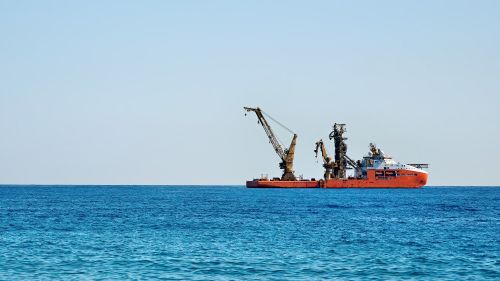Global Energy Perspective 2024: The Next Phase of the Energy Transition


Cut through the green tape
We don't push agendas. At Net Zero Compare, we cut through the hype and fear to deliver the straightforward facts you need for making informed decisions on green products and services. Whether motivated by compliance, customer demands, or a real passion for the environment, you’re welcome here. We provide reliable information—why you seek it is not our concern.
A new report from McKinsey & Company, titled Global Energy Perspective 2024, offers a comprehensive overview of the world’s energy transition, outlining both achievements and ongoing challenges.
Despite major advancements in renewable energy adoption, the report projects that global emissions will continue to rise, exceeding the limits required to maintain global warming below 1.5°C. While renewable energy sources such as solar and wind are expanding rapidly, fossil fuels, particularly natural gas, will remain in the energy mix for the foreseeable future. McKinsey emphasizes that while the use of coal and oil is projected to decline, the pace of this reduction may not be sufficient to meet climate goals.
Solar and wind energy are leading the charge in the global transition to clean power, with solar projected to witness particularly strong growth. However, for renewables to fully replace fossil fuels, significant investment in grid infrastructure is required. Modernizing grids to handle intermittent renewable energy sources and enhancing storage capacity are critical steps in ensuring energy security.
Moreover, new technologies such as green hydrogen and carbon capture and storage (CCS) are seen as essential to the future energy mix, but they still face hurdles in terms of cost, scalability, and regulatory frameworks. The report also points to the potential of nuclear power to complement renewable sources, although it requires significant investment and policy support.
One of the key challenges highlighted by the report is the rising cost of renewable energy, largely due to supply chain disruptions and the increasing demand for raw materials. While renewables are still generally more cost-effective than fossil fuels, these cost pressures could slow the energy transition.
The energy transition is progressing unevenly across different regions. Developed countries are advancing faster while emerging markets face difficulties related to financing, energy access, and security. The report calls for international cooperation and financial mechanisms to ensure that all regions can participate in the transition.
McKinsey estimates that trillions of dollars in investments will be required over the next few decades to transform global energy systems. Investment priorities include renewable energy projects, grid modernization, and the deployment of next-generation technologies like CCS and hydrogen. Without substantial financial commitments, the world risks failing to meet its energy and climate objectives.
Source: solarquarter.com

More related content

Norway Launches World’s First Full-Scale Carbon Capture and Storage...

Arup and Autodesk Join Forces to Accelerate Decarbonization in Cons...

ASHRAE and ICC Launch Second Public Review for Standard 240P on Lif...
